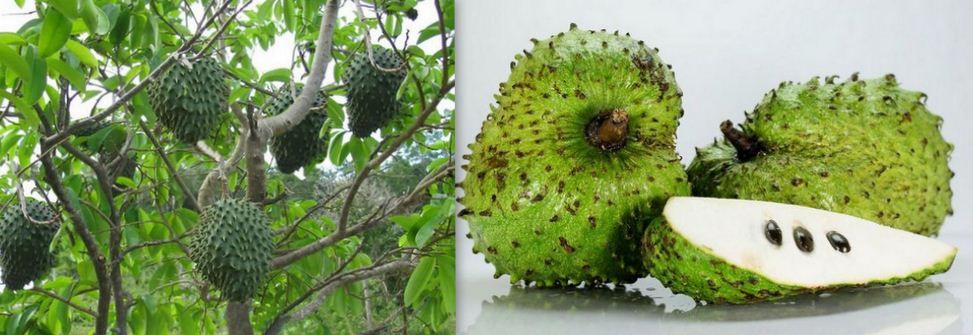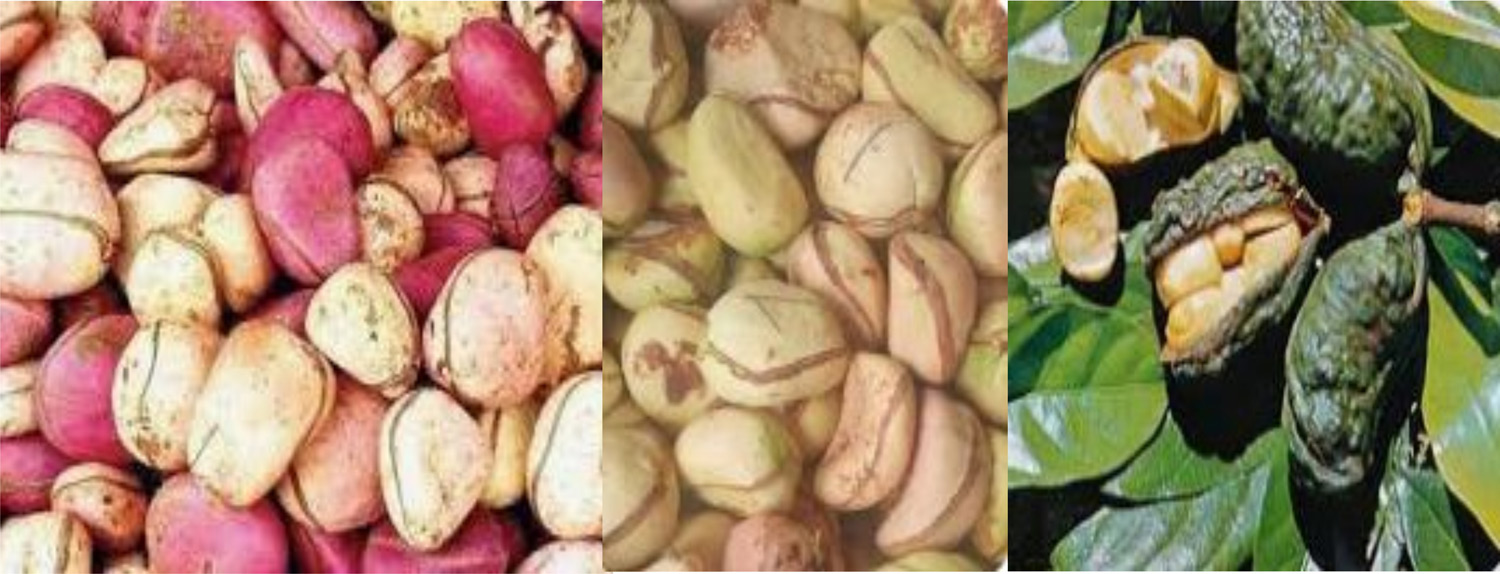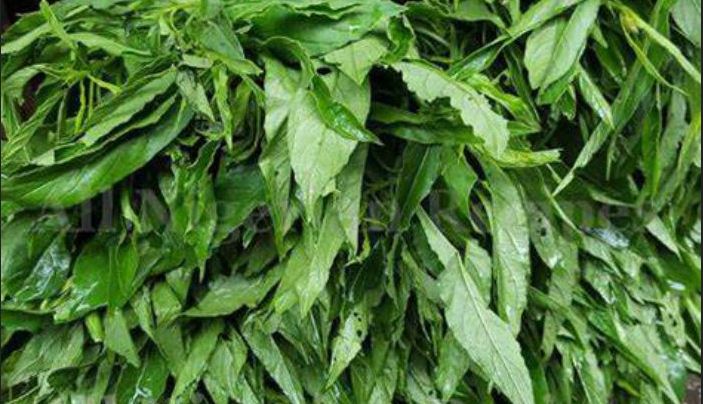About Health and Nutritional Benefits of Fluted Pumpkin Leaves (Ugu)

Fluted pumpkin leaves, also known as Ugu, are dark green leafy vegetables with an earthy, mild flavour that are loved in West Africa and beyond. These nutritious leaves are tasty and good for your body, mind, and soul.
You can prepare them in a soup, serve them raw in a salad, or juice them. Research backs up the health benefits of fluted pumpkin leaves, as shown in this review of trusted sources’ information. It also has a few easy tips on incorporating Ugu into your life. Want to know how fluted pumpkin leaves can improve health? Let’s explore the details!
What Makes Fluted Pumpkin Leaves Special
The fluted pumpkin leaves, known scientifically as Telfairia occidentalis, grow in tropical West Africa. They are also called Ugu in Igbo, Sokoyokoto in Yoruba, Kabewa in Hausa, and Ikong-Ubong in Efik. Because they are nutritious, these leaves have been used in traditional food and medicinal preparations for centuries.
One cup of cooked Ugu (that’s about 90 grams) has only 35 calories but also contains fibre, vitamins A and C, iron, and calcium. The leaves of fluted pumpkin can help with digestion, strengthen immunity, and more. Here are the seven benefits and how they work.
Fluted pumpkin leaves provide seven health benefits
1. Supports Digestion
Good digestion makes one feel comfortable after meals, and fluted pumpkin leaves can help. Eating Ugu will help you with bowel movements, as it has plenty of fiber to ease constipation.
Its high water content, around 90%, keeps stools soft. A 2017 Nutrients study says that fiber prevents constipation and improves gut health. The nutrients in Ugu can help reduce stomach bloating. Including fluted pumpkin leaves in your meals helps smooth digestion every day.
It works by moistening the stool as it passes through the gut.
Include the leaves of the fluted pumpkin in your meals daily for smooth digestion. How It Works: The fibre adds bulk to the stool, and water prevents dryness.
2. Strengthens Immunity
To stay well, you need a strong immune system. Ugu or fluted pumpkin leaves help. One cup of ugu provides approximately 20% of your daily vitamin C requirements, which helps to fight germs by supporting white blood cells.
According to a 2019 Foods study, Ugu comes packed with flavonoids, antioxidants capable of protecting cells from damage. Eating fluted pumpkin leaves will boost your body’s ability to resist colds and infections.
How It Works: Vitamin C boosts immune cells while antioxidants protect against damage.
You can blend fluted pumpkin leaves in a Ugu recipe juice with pineapple, and cook it in a soup with fish.
3. Improves Heart Health
The heart works nonstop, so fluted pumpkin leaves can help. One cup provides approximately 5% of the daily potassium requirement, which balances the level of salt in the body to keep blood pressure normal. Fiber (3 grams to be exact) can help lower “bad” cholesterol (LDL) that can clog arteries.
A 2020 study in the Journal of the American Heart Association found that leafy greens like Ugu cut down the risk of heart disease. Thus, Ugu nutrition is a heart-friendly choice for daily meals.
How It Works: Potassium relaxes blood vessels, and fiber lowers cholesterol.
You can stream the pumpkin leaves for a side dish or inject them into your jollof rice with tomatoes.
4. Enhances Eye Health
Clear sight is essential for daily activities. Ugu or fluted pumpkin leaves can help promote good eyesight. They contain beta-carotene, a vitamin A that helps the retina see better, especially in the dark.
One cup provides about 50% of the daily vitamin A needed. According to the National Institutes of Health, Vitamin A helps fight eye problems, like night blindness. Fluted pumpkin leaves contain higher amounts of antioxidants that protect the eyes from damage.
The beta-carotene produces vitamin A, while antioxidants protect the eye cells.
You can use ugu in so many different ways. You can add raw fluted pumpkin leaves to a wrap for easy consumption, or cook ugu in an ugu recipe stew, mixing it with carrots.
5. Supports Bone Health
Eating fluted pumpkin leaves can help you maintain strong bones. One cup has about 10% of the daily calcium needed for bone strength. It contains magnesium, too, which allows calcium to remain in bones. According to a 2017 research study, magnesium and calcium reduce fractures. Adding Ugu to meals often helps to keep bones strong.
Calcium makes bones strong, while magnesium helps absorb calcium.
Add Ugu leaves to a smoothie with a banana. Alternatively, combine Ugu leaves with beans during cooking.
6. Aids Weight Management
Eating more nutrient-dense foods makes it easy to maintain a healthy weight. Ugu is excellent for this. You’ll only take 35 calories and 3 grams of fiber in a cup. A study in Nutrients in 2021 showed that Ugu may blunt your appetite, aiding weight loss. With health benefits, fluted pumpkin leaves are essential for a well-balanced diet.
It Works: The fiber helps you feel full, while low calories limit intake.
One way to eat Ugu (fluted pumpkin leaves) is to use it as a dipping leaf with any sauce.
Another way to eat Ugu is to add some Ugu leaves to a soup recipe with beans.
7. Boosts Blood Health
Fluted pumpkin leaves can help blood be carried appropriately. One cup supplies about 8 percent of your daily needs for iron, which aids in red blood cell formation.
According to a 2019 EScientific Publishers study, Ugu has iron, which may help prevent anemia when combined with vitamin C for better absorption. Eating Ugu regularly can improve energy and strength.
Iron builds red blood cells, and vitamin C improves absorption.
You can blend Ugu (fluted pumpkin leaves) into a lemon juice recipe or throw them into a stew with meat.
What Is in Fluted Pumpkin Leaves
One cup of cooked fluted pumpkin leaves (about 90 grams) contains the following.
Calories: 35—low and light.
Water: 90%—helps hydration.
3 grams of fiber is good for digestion and the heart.
Vitamin C helps with immunity and blood health—20% of the daily need.
Vitamin A: Assists with eyes and skin, 50% of the daily need.
Calcium: 10% of daily need—helps bones.
Iron: 8% of daily need—helps blood health.
According to USDA and research data from Nutrients 2017, ugu's nutritional information is plain but powerful.
Antioxidants in Fluted Pumpkin Leaves
Fluted pumpkin leaves have antioxidants such as flavonoids and vitamin C. These substances prevent harmful agents known as free radicals from harming cells. By preventing cellular damage in the body, Ugu nutrition protects the liver, maintains skin clarity, and minimizes organ stress, making it better than most other vegetable options.
How to Include Fluted Pumpkin Leaves in Daily Life
Fluted pumpkin leaves are readily available in stores worldwide. They can be bought fresh, dried, or frozen. Their soft texture makes them easy to use in many dishes. Here are ideas for enjoying Ugu recipes throughout the day.
Morning Options
For the breakfast Ugu recipe, add raw fluted pumpkin leaves to any egg sandwich.
Smoothie Option: Ugu blended with mango makes for a nutritious drink.
Mix of Cereal: Prepare fluted pumpkin leaves with cereal and a little salt.
Midday Options
Toss sliced cucumber and raw Ugu leaves together for a meal.
Mix some cooked fluted pumpkin leaves with egusi soup for a classic Ugu recipe meal.
Eat raw Ugu with groundnuts for energy.
Evening Options
This superfood meal can be prepared by steaming fluted pumpkin leaves as a fish meal nugget.
Use Ugu to spice up your fried rice for an unforgettable dinner.
Combine fluted pumpkin leaves with lime for a light juice that makes an excellent evening snack.
Anytime Options
Snack On: When hungry, eat Ugu leaves raw.
Juice: Mix Ugu juice with chilled water.
Make a stir-fry with fluted pumpkin leaves and some pepper.
Be careful to wash the leaves so they are not dirty. Those with kidney problems should eat them moderately due to oxalates that may hinder calcium absorption. Boiling can reduce oxalates by 50%, making it safe for the majority. Talk to a doctor if you have concerns.
History of Fluted Pumpkin Leaves
For centuries, the West African people have grown fluted pumpkin leaves, which they often use in soups such as Edikang Ikong and Egusi to feed families. They were very much appreciated because they grow very fast in a tropical setting, so nutrition can be sourced throughout the whole year. Ugu has become well accepted in Nigeria and the diaspora community for its flavour and health effects.




